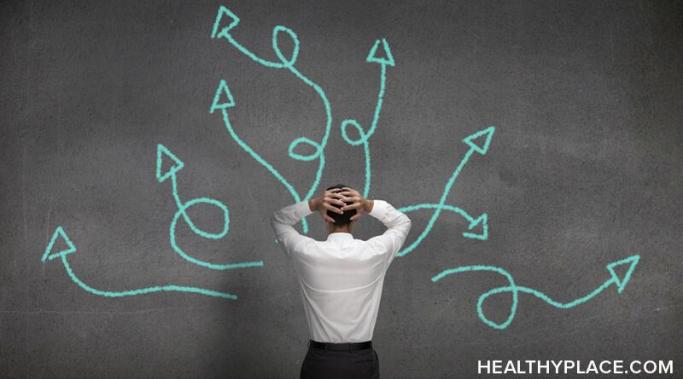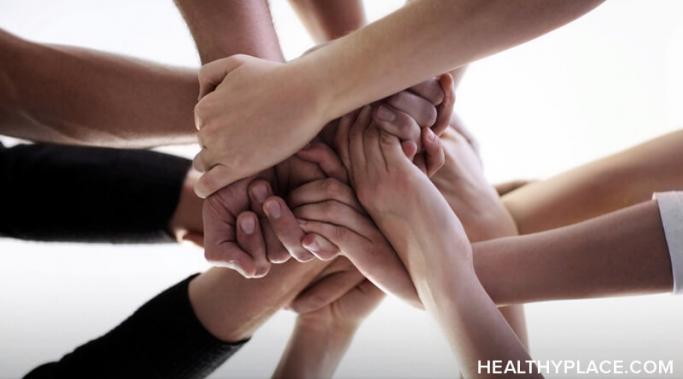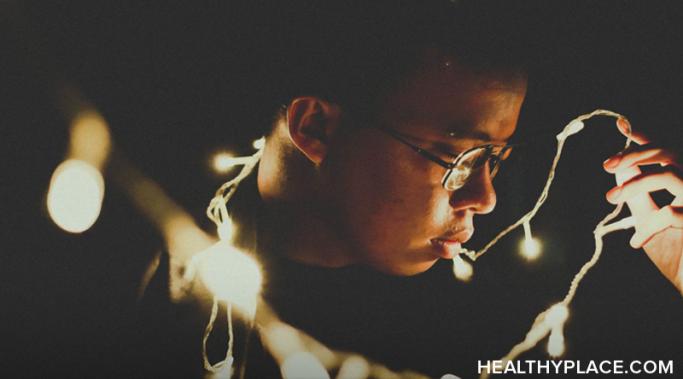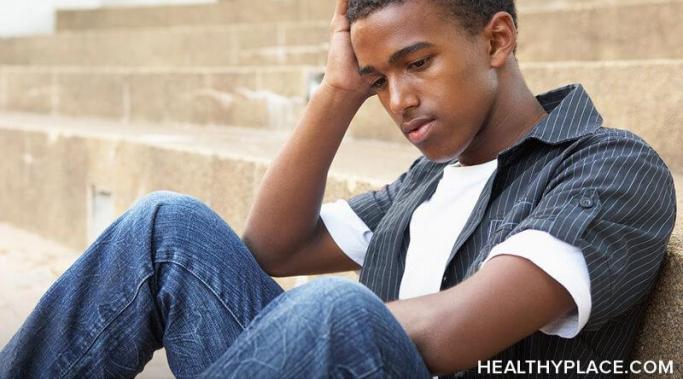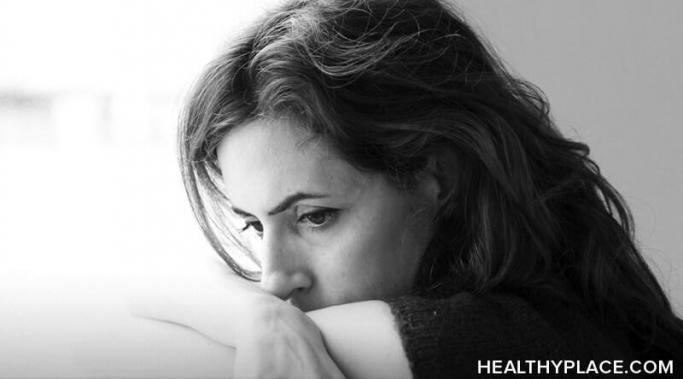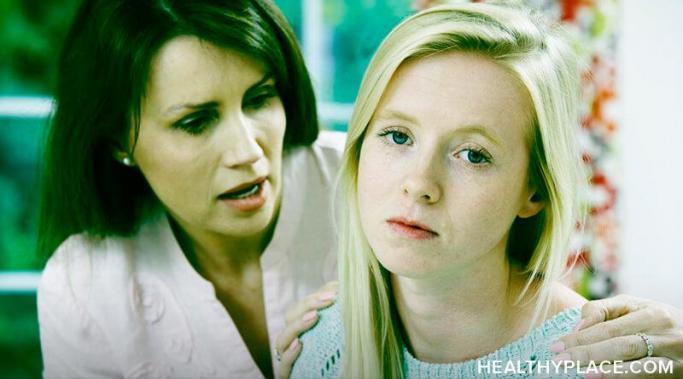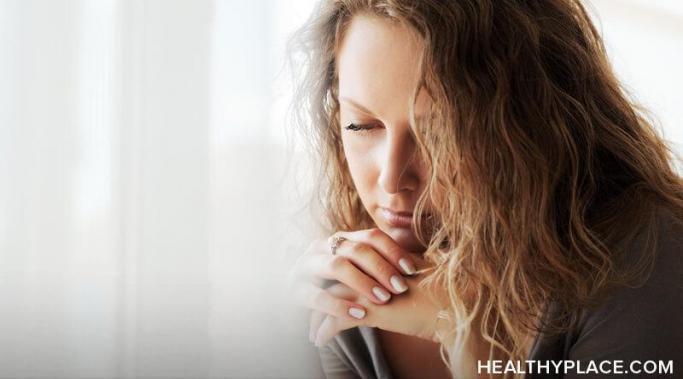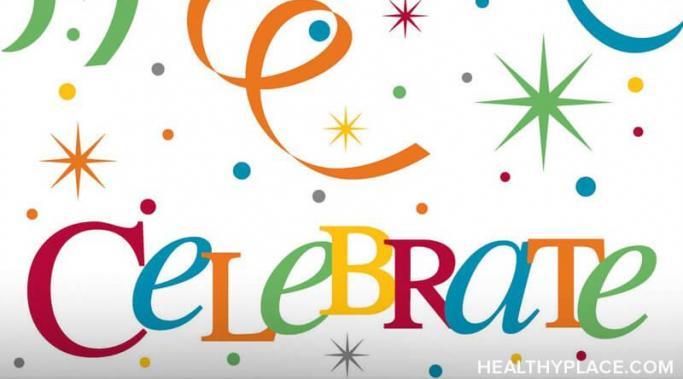What is catastrophizing in depression? According to the APA Dictionary of Psychology1, to catastrophize is "to exaggerate the negative consequences of events or decisions." I define it as freaking out over little-to-medium crises or unexpected occurrences in my life. It's like thinking the whole evening is ruined if I forget to thaw the chicken for dinner of feeling like I'm a mess all day if the outfit I'd planned to wear isn't clean. Catastrophizing could be set in motion by getting an unexpected bill in the mail. It could begin upon receiving a text from a friend canceling plans. Perhaps a catastrophization trigger for you would be the difficult decision of choosing between two great job offers. Any one of these events can set off a chain reaction that results in catastrophizing that worsens depression.
Coping with Depression
Volunteering helps depression, even though that may seem counterintuitive at first. You may feel overwhelmed at the thought of helping others when you can barely help yourself. However, volunteering can be a good and helpful way to cope with your own depression. Turning your focus outward brings a new perspective into your life, and this perspective of volunteering can help your depression.
Those of us diagnosed with depression will experience the darkness that comes with it, yet there are things we can do to shine a light into even the darkest of days. When it feels as if all our joy has been stripped away, we discover that we might have to work harder to create happiness and light in our lives. Let's talk about some simple ways to do that.
Your child has been diagnosed with depression. Now what? You're overwhelmed. You already have a depression diagnosis yourself. How can you cope with both your depression and that of your child's? Take a breath. Relax. Let's walk through this together.
Major depressive episodes are part of the major depressive disorder that I live with every day; however, I experience seasons or phases when my depression is worse than others. When I go through these major depressive episodes, I know how important it is to work toward recovering from them. I've developed some coping skills and activities that work for me. I'd like to share them with you so that, when you face major depressive episodes, you, too, will have some strategies in place to help in recovery.
The challenge of coping with our depression can be more difficult when people make hurtful remarks to us. Often these hurtful remarks will fuel our negative thoughts and potentially send us into a major depressive episode. What are some of the comments we may hear? How can we use coping skills to keep the harmful comments of others from worsening our depression?
For those with depression, isolation is often something we experience. Many times we don't have the energy or desire to go out and socialize; however, living in isolation is no true life at all. We don't have to allow our depression to keep us isolated. We just need some guidelines so we can tell the difference between isolation and alone time.
For those of us with depression, it's easy for us to lose sight of what makes us who we are: personalities, senses of humor, talents. Our interests and passions often get buried under the weight of the burdens we bear. Depression makes it hard for us to find ourselves; however, in spite of the hardship, it's a worthwhile investment we should make. I've gotten some insights I'd like to share with you about how finding yourself can truly be a great way to cope when you have depression.
Depression can interfere with setting goals. Many people set resolutions for the new year, but doing so can lead to feelings of failure when these resolutions aren't met; therefore, I suggest setting goals that will help us cope with our depression throughout the year of 2019. Rather than using these goals as a means to improve things we see as flaws in ourselves as people often use resolutions to do, we should view these goals instead as ways of taking better care of our ourselves and working toward improving our mental health. So, let's get started on a list of goals that we'll find helpful as we cope with our depression in 2019.
Finding gifts for depressed people can be confusing, but with the holiday season in full swing, some of you may be looking for thoughtful ideas for presents to give to someone who has been diagnosed with depression. Perhaps you yourself have depression and are trying to figure out what types of gifts you'd like to receive this year. I decided it might be helpful for me to share some of my favorite present ideas with you so you can give gifts to depressed people that make a difference to them.
